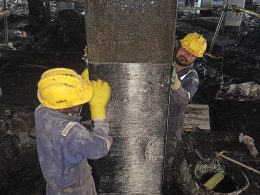The world of work is changing rapidly, and with it, the real estate industry is also evolving. In recent years, technological advancements and shifts in the global economy have led to significant changes in the way we work. With the rise of remote work, freelance jobs, and the gig economy, traditional office spaces are becoming less important, and workers are looking for new types of workspaces to meet their needs.
This shift towards flexible work is having a major impact on the real estate industry. As more workers are able to work remotely, they are no longer tied to living near their workplace, and can move to locations that better suit their lifestyle. This has led to a rise in demand for affordable housing and co-living spaces, as well as an increased interest in suburban and rural areas.
The impact of flexible work is also being felt in the commercial real estate market. Traditional office spaces are no longer the only option for businesses, and co-working spaces and shared office spaces are becoming increasingly popular. These types of workspaces allow businesses to save on overhead costs, while also providing a flexible and collaborative environment for their employees.
Another trend that is emerging in the real estate industry is the integration of technology into buildings. Smart buildings are becoming more common, with features such as automated lighting, temperature control, and security systems that can be controlled remotely. These features not only make buildings more efficient, but also provide a better experience for workers and residents.
In addition to these changes, there are also new regulations and policies being implemented to ensure that workers are treated fairly in the gig economy. For example, in California, a new law requires companies to classify gig workers as employees rather than independent contractors, which could have significant implications for the real estate industry.
Overall, the future of work is having a profound impact on the real estate industry. As workers become more flexible and mobile, the demand for new types of workspaces and housing is increasing. The integration of technology into buildings is also changing the way we use and interact with real estate. As these trends continue to evolve, it will be interesting to see how the real estate industry adapts and innovates to meet the changing needs of workers and businesses.












